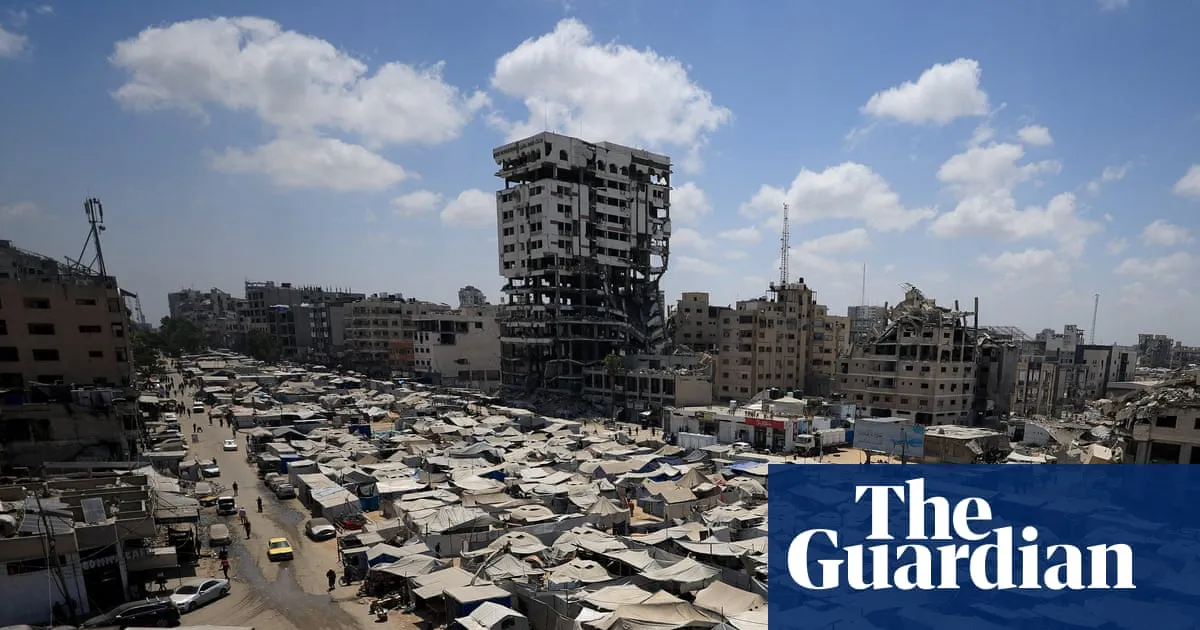
On Sunday, fear and anxiety enveloped the Palestinian population as the Israeli military announced preparations for the forcible displacement of 1 million people from Gaza City. This alarming statement followed Israel's declaration of a new offensive aimed at seizing control of the territory's largest urban center, raising significant concerns on the international stage. The announcement coincided with escalating violence, with Gaza's health officials reporting the deaths of at least 40 individuals on Saturday, including a baby and others seeking aid.
The Israeli Coordination of Government Activities in the Palestinian Territories (COGAT) stated, “Based on the directives of the political leadership, and as part of the Israel Defense Forces’ preparations to transfer civilians from combat zones to the southern Gaza Strip for their safety, starting tomorrow Sunday, the provision of tents and shelter equipment for Gaza residents will resume.” This plan involves transferring supplies through the Kerem Shalom crossing with the assistance of the United Nations and international relief organizations, pending thorough inspections by the Land Crossings Authority of the Ministry of Defense.
Amid these developments, newly released recordings aired by an Israeli television station revealed a general from Israel's military intelligence expressing a chilling sentiment that “50 Palestinians must die” for every Israeli casualty, indicating a disturbing disregard for civilian lives. In a separate but related incident, the U.S. State Department announced a halt to visa issuance for children from Gaza requiring urgent medical care, following pressure from Laura Loomer, a far-right influencer.
As the prospect of another military offensive looms, Palestinians in Gaza face the grim reality of repeated displacement, living in makeshift tent camps, with dwindling food supplies and a lack of medical resources. “We are already destroyed and exhausted, physically and psychologically, from repeated displacement, from the lack of food and water,” lamented Akram Shlabia, 85, from the Shuja’iyya neighborhood. “And now they want us to go to the south. Into nothingness, into the unknown, into a place without shelter or the basic means of life, even safety.”
The challenges of displacement are daunting for many families. Mazen Hasaneh, 40, from the al-Tuffah neighborhood, described the struggle of securing transportation for essential items like tents, highlighting that many drivers exploit the desperation of displaced families, raising prices when people have little to no money. “The second problem is finding a place to set up the tent and settle, along with the difficulty of finding and providing water and food,” he added. “Everything about displacement is suffering, especially in our current conditions.”
Some families have already begun relocating south to secure shelter, while others are reaching out to relatives for support. However, many residents express their reluctance to leave Gaza City, preferring to endure hardships rather than face the unknown. “If the plan is carried out, I will look for a safe place for myself and my children within Gaza,” said Asma Al-Barawi, 34, a mother of seven. “I didn’t leave the first time, and I won’t leave this time. The experiences and suffering I heard from the displaced who went south were harsh and unbearable.”
As the conflict continues, heavy explosions resonate from the eastern regions of Gaza, where Israeli forces have intensified military operations. Tragically, a recent Israeli airstrike resulted in the deaths of a baby girl and her parents in al-Muwasi, a previously designated humanitarian zone. “Two and a half months old, what has she done?” questioned a neighbor, highlighting the tragic human cost of the ongoing conflict. The Israeli military has not provided comments on this specific strike.
According to the civil defense agency, at least 13 Palestinians were reportedly shot by troops while awaiting food aid, and the health ministry indicated that there were 11 malnutrition-related deaths over the past 24 hours, including at least one child. This has raised the total number of malnutrition-related deaths due to the ongoing Israeli blockade to 251.
In Israel, police clashed with thousands of protesters in Jerusalem demanding a resolution for hostages held in Gaza. The demonstrations, organized by families of hostages, aimed to paralyze the country with a one-day strike that blocked roads and shuttered businesses. Protesters chanted, “We don’t win a war over the bodies of hostages,” highlighting the growing frustration over the military offensive and its potential risks to remaining hostages, estimated to be around 20 still alive. The protests were among the largest in the last 22 months of conflict, resulting in 38 arrests by police.